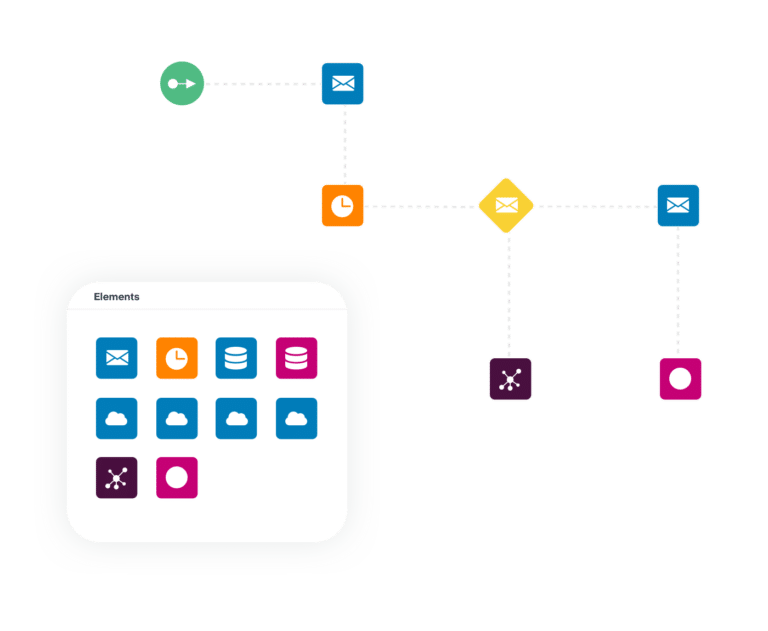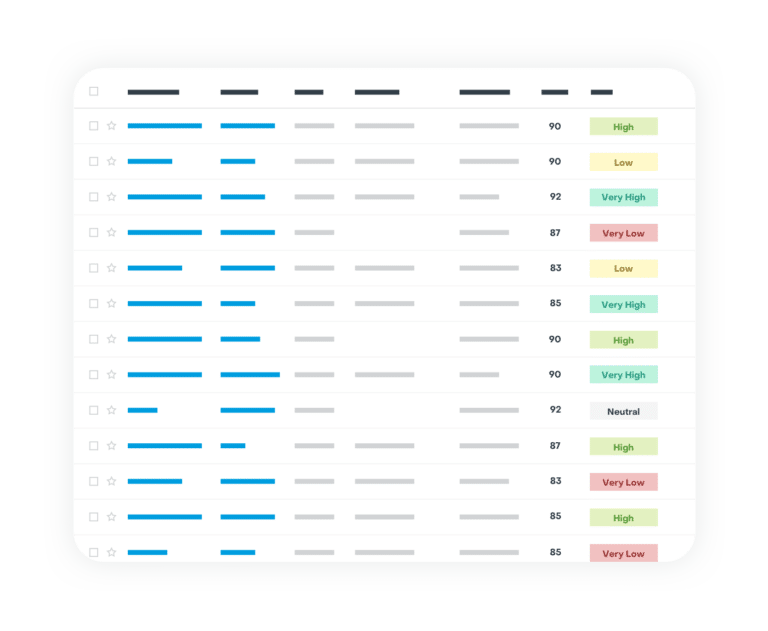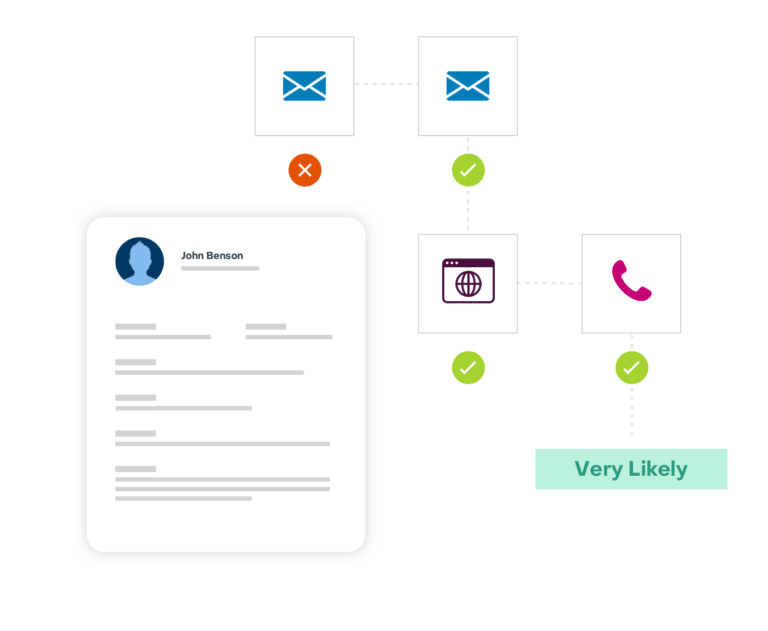- What Is Marketing Automation?
- How Does Marketing Automation Work?
- What Does Marketing Automation Do?
- What Are the Benefits of Marketing Automation?
- The Sugar Market Difference
Check out the details about some specific benefits associated with marketing automation here.
Marketing automation is a growing trend across all industries, and for a good reason. Top-performing companies are more likely to be using AI and automated marketing tools than their competitors. These technology tools help businesses scale marketing and sales processes, capture and nurture leads through to conversions, and grab hold of data to let decision-makers continuously improve branding, marketing, sales, and customer service.
What Is Marketing Automation?
Marketing automation strives to remove manual processes from marketing efforts at the most basic. It may also be concerned with removing manual processes from actions closely related to marketing, such as sales and customer service. That’s especially true in downline processes that stream directly from marketing efforts.
Most commonly, organizations look to automate repetitive tasks that can unnecessarily take up the time of marketing professionals. That can include but isn’t limited to sending email drip campaigns, launching and managing ad campaigns, posting on social media, and gathering contact information and other data relevant to leads.
How Does Marketing Automation Work?
Marketing automation relies on software programs, artificial intelligence, and machine learning to handle repetitive tasks. It can also manage scaled processes and data that would be prohibitively expensive or time-consuming via manual processes.
Marketing automation relies on software programs, artificial intelligence, and machine learning to handle repetitive tasks.
Here’s a look at some of the common components of marketing automation.
Automatic data capture: Marketing automation solutions are often designed to capture data in specific processes. That might include emails and contacts entered by leads or scraped from emails. It could also include data about visitors to your website, how people engage with marketing emails or social posts, audience demographics, or the performance of ad campaigns.
Marketing databases: All that data has to go somewhere to be called upon later to support automatic processes and analytics, business decisions, and manual workflows. Some marketing automation software solutions offer cloud storage internally, while others solve data storage with partnerships and integration. In all of these cases, databases play an important role.
Report tools: Of course, the data isn’t helpful if you can’t access it in a user-friendly manner. Dashboards and reporting tools are an important part of marketing automation platforms, which might also feed reporting functions in other solutions.
Workflows: Workflows are the pathways over which information and tasks travel. You can automate workflows. For example, marketing software might be equipped to decide that a certain lead would benefit from a specific email drip campaign and launch that campaign. You can also have manual workflows that are fed by automatic processes. If the marketing software applies a scoring matrix and decides a lead is urgent and highly qualified, it might route it to a workflow or an email inbox so a salesperson can act on it.
Machine-based decision-making: The type of automated decision-making described above required a machine. This occurs when the software can consider various data elements against preprogrammed instructions, making correct choices about the proper course of action. It’s the foundation of automated workflows. Machine learning goes a step beyond this; in this case, the software can adapt to situations to make increasingly better decisions based on what was done before.
Integration with other apps and software: Integration is the key to success with marketing automation solutions. A solution that gathers data, makes decisions, and routes work appropriately doesn’t save you time and effort if it can’t send that information to other systems for use there. Many marketing automation systems integrate with sales, customer relations, content, or financial management technology.
What Does Marketing Automation Do?
Marketing automation platforms use the components described above to handle a variety of processes, including:
Tracking and capture: A marketing automation platform tracks activity associated with prospects before and after conversion. Once a prospect converts, the lead is stored within the platform. You can segment leads for campaigns based on engagement, firmographics, or demographics.
Nurture and score: The platform nurtures leads using rules that automatically send personalized content. It also scores leads based on activities and other factors you determine are valuable to your business. Once leads hit scoring thresholds, they can automatically be passed onto sales teams via integration with your CRM tool.
Align and win: Marketing automation software doesn’t just help marketing professionals. A platform that integrates with CRM tools and other solutions helps streamline lead management processes by equipping sales and customer service teams and marketing intel. It also enables you to determine how valuable your qualified leads are and how you might improve that value.

Marketing automation that integrates with CRM tools and other solutions helps streamline lead management processes.
What Are the Benefits of Marketing Automation?
According to McKinsey, as of 2020, more than half of organizations had adopted AI for at least one function. Businesses that use AI and automation reap rewards that include higher revenues, lower costs, improved customer satisfaction, and even better employee morale. Check out the details about some specific benefits associated with marketing automation below.
- 1. Let You Do More With Less
Automation of any type improves an organization’s ability to scale. Computers don’t have the same limitations as their human counterparts. They don’t need to rest, can be left to work overnight, and can handle programmed calculations and functions at speeds (and accuracy rates) that far surpass the capacity of manual processes.
Marketing automation lets you scale up to handle thousands or tens of thousands of leads without dramatically increasing your workforce or forcing your marketing teams to work more hours at faster paces, leading to burnout and costly errors.
2. Helps Drive More Qualified Leads
Marketing automation platforms provide intelligent qualification, customer segmentation, and scoring processes for leads. At each step of the sales funnel, the system can score leads based on factors you select, including:
- Demographics, such as age, gender, income level, and geolocation.
- Firmographics, such as type and size of organization and the role lead plays in buying decision process within the organization.
- Engagement behavior, such as what content the person engaged with, how interested they seem in certain products, and whether they signed up for specific offers.
- Where they appear to be on the buyer’s journey, such as whether they’re just starting to research options or have a lot of commercial intent and may be ready to buy.

Marketing automation platforms provide intelligent qualification, categorization, and scoring processes for leads.
3. Stops Your Sales Funnel From Dropping Leads
Automation platforms are equipped to capture most or all possible leads. Automating lead capture provides many benefits, including:
- Capturing anonymous leads that arrive on and engage with your web pages but navigate away without dropping an email or other contact information.
- Supporting drag-and-drop or click-to-capture processes that let anyone in your organization turn an email with contact information into a lead.
- Funneling data from social media, contact us forms and other channels into a single lead database.
- No more manual data entry. No more typos that lose you the lead. There is no more siloed information hampering your marketing and sales organizations and leads to duplicated work or entire lead lists languishing past metaphorical expiration dates.
4. Helps You Understand Engagement Behaviors
All the information gathered by an automated marketing platform creates a powerful business decision engine. Organizations can use the information to:
- Understand how prospects engage with various marketing efforts. This lets you know when you’re hitting the mark and how you can improve messaging to drive more engagement, leads, and conversions.
- Find winners in marketing, sales, and customer service. You can easily see what campaign drove the best results with the data at your fingertips. You can also understand which sales teams or talent converted more leads and whether your customer service processes are working to retain converted customers.
- Forecast future marketing, sales, and customer service needs. Do you need to ramp up sales efforts for the holidays? Will adding a new ad campaign and landing page result in a significant increase in demand for customer service in the future? These are the questions you can help answer with data gathered by marketing automation platforms.
5. Frees Staff Up for More Complex Processes
Marketing automation doesn’t just let you get more done with less by handling more tasks than a human team could. It also removes the burden of tedious tasks from your team members. That frees your talent up for more complex, creative, or valuable tasks that push the envelope on marketing and lead management.
While the word “automation” has historically caused people to worry about their job security, the term “marketing automation” can cause teams to celebrate. Instead of manually transferring contacts into CRM systems or sorting through contact databases to design the right list for a specific offer, teams can spend time crafting creative offers or connecting organically with qualified leads. It’s usually a win for everyone.

Marketing automation helps handling more tasks than a human team could.
6. Makes A/B Testing Easy
One area where marketing automation is particularly valuable is in A/B testing. Also called split testing, this process involves testing one option against another to see which one performs better.
For example, you might send out two versions of a marketing email. One has a short subject line to stir emotion, while the other has a longer and more descriptive subject line. If you see that your audience responds to the longer, more descriptive subject line, you can write subject lines like that in the future to increase performance.
Marketing automation speeds up this process so you can constantly test various factors without disrupting your messaging. For example, you can program an A/B test with a marketing automation platform where one version of your email is sent to 20% of your audience. The other version is sent to a separate 20%. Whichever version wins the A/B test is sent to the remaining 60% of your audience, potentially driving up performance immediately.
The Sugar Market Difference
Sugar Market is an automated marketing solution that helps you achieve all of the above benefits and so much more.
Automated email campaigns so you can create flexible messaging that works for you and your audience. That includes powerful one-off messaging backed by custom landing pages and automated drip campaigns that help you nurture leads through multiple stages.
Lead scoring lets you align marketing and sales priorities, nurturing the highest value leads first or ensuring you expend the right amount of effort for each lead.
Predictive analysis helps you better understand your customers, deliver the best offer at precisely the right time, and engage in nurturing efforts that genuinely align with the needs and desires of your target audience.
If you’d like to know more about marketing automation can do for your buisness, get in touch with one of our experts today and we’ll help you find the right solution.
This article was first published on Sugar CRM. You can read the original here.
